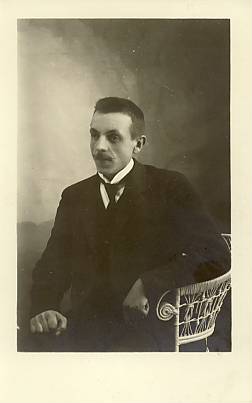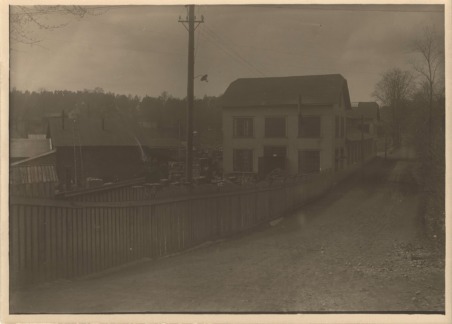Karl Hugo Fröjd (12.3 1889–6.1 1956) was a worker who lived in Fiskars. He worked in the Upper Ironworks area, which was the center of heavy industry in Fiskars. Different workshops and factories such as the machine workshop, the plough workshop, the rolling mill, and the foundry were situated in this area.
When he was young Fröjd worked at the machine workshop, where machine parts were manufactured. Later he also worked at the plough workshop, where the famous Fiskars ploughs were made. His family had lived in Fiskars for many generations, and his ancestors probably also worked in the same workshops and factories before him. Karl Hugo Fröjd was also a member of the Fiskars youth association, which strived to promote Christian values, patriotism, unity, education and activities for the youth. During meetings the members of the association practiced discourse, held theatre plays, and sang together. It has been told that the children in Fiskars were used to hearing singing in their homes because of this, probably also in the home of Karl Hugo Fröjd.
The workers often lived in residential areas close to the workshops, and the ironworks often provided workers with housing. Many workers in the Upper Ironworks lived in Kulla, an idyllic landscape of red wooden houses nestled in the countryside. Work in the factories was tough and messy, and at about 10 years of age young boys as started working here as apprentices or errand boys. Karl Hugo Fröjd had to spend the whole day working next to the steel-melting furnace and its scorching hot flames, as he worked forging plowshares. The ironworks did however look after its workers, and provided them with housing, schools, healthcare, and a library. Workers also had access to many different extracurricular activities and local associations.

